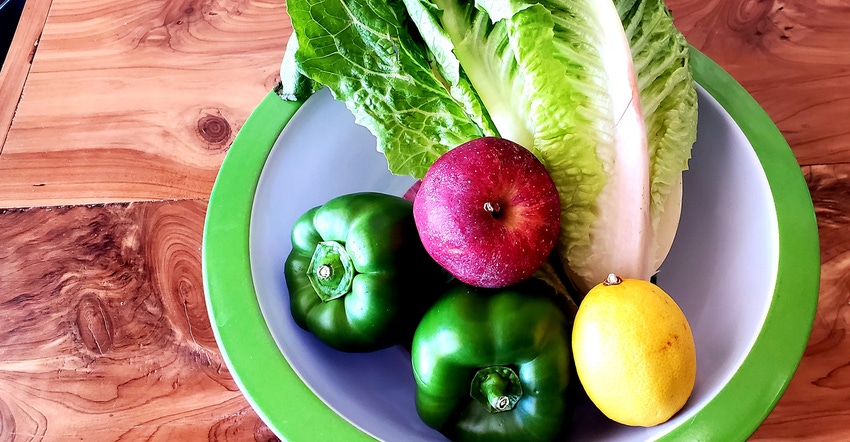March 25, 2020

Stocking up on essential groceries and other supplies as the COVID-19 virus threat spreads across the country will require consumers to rely on their storm season preparedness skills, but for a longer period of time.
Undoubtedly, many Oklahomans have made the trek to the grocery store to get supplies, which is a good idea, said Barbara Brown, Oklahoma State University Extension food specialist.
“While most folks are stocked up for several days, or even a couple of weeks, they will eventually have to go back to the store for more supplies,” Brown said. “Be sure to keep safety precautions in mind before venturing out of the house.”
Brown advises people to wash their hands thoroughly with soap and water before leaving the house. Obviously, people will come into contact with a lot of different surfaces while they shop, including shopping carts, credit card keypads and products others have touched. Shoppers may ask themselves if the fresh produce and other food items are safe.
“No washing method completely removes or kills all microbes which may be present on produce. However, studies have shown that thoroughly rinsing fresh produce under running water is an effective way to reduce the number of microorganisms,” she said. “Washing fruits and vegetables not only helps remove dirt, bacteria and stubborn garden pests, but also helps remove residual pesticides.”
Brown suggests waiting to wash produce until it is ready to be used. Washing produce before use may promote bacterial growth and speed up spoilage, so it is recommended to wait and wash fruits and vegetables right before using.
For those who may want to go ahead and wash the produce before storing, Brown said to be sure and dry thoroughly with clean paper towels.
Try to maintain social distancing as much as possible. Move away from people who are coughing, especially those who fall into a higher risk category. Wearing gloves while shopping is an extra layer of protection, too.
Once the groceries are bagged and people are ready to leave the store, take advantage of hand sanitizers or disinfecting wipes at the door if they are available. And, try not to touch your face. Once back at home, consumers should give their hands another thorough washing.
Brown said at this point there is no scientific evidence consumers need to wipe down all of the groceries when putting them away.
“This really is a matter of preference, and an extra measure of caution certainly won’t hurt anything,” she said. “But if items are going to be stored for a week or more before being used, there isn’t a need to wipe them down before storing.”
Another option for consumers in some areas is home delivery. There are several companies that offer this service, and it could be a very handy alternative, especially for those consumers who are at higher risk of becoming infected. Brown said the same safety precautions apply in that consumers should wash their hands thoroughly after accepting the home delivery.
Being vigilant about cleaning does not apply just to groceries. Be sure to regularly wipe down countertops, faucets, doorknobs, cabinet pulls, refrigerator handles and toilet handles with sanitizing wipes, soap and water or a spray bleach solution.
“This whole scenario is new to us and information is changing every day,” Brown said. “Don’t be afraid to go to the store, but be sure to take all of these precautions to help ensure your health and safety.”
Source: is OSU, which is solely responsible for the information provided and is wholly owned by the source. Informa Business Media and all its subsidiaries are not responsible for any of the content contained in this information asset.
You May Also Like




